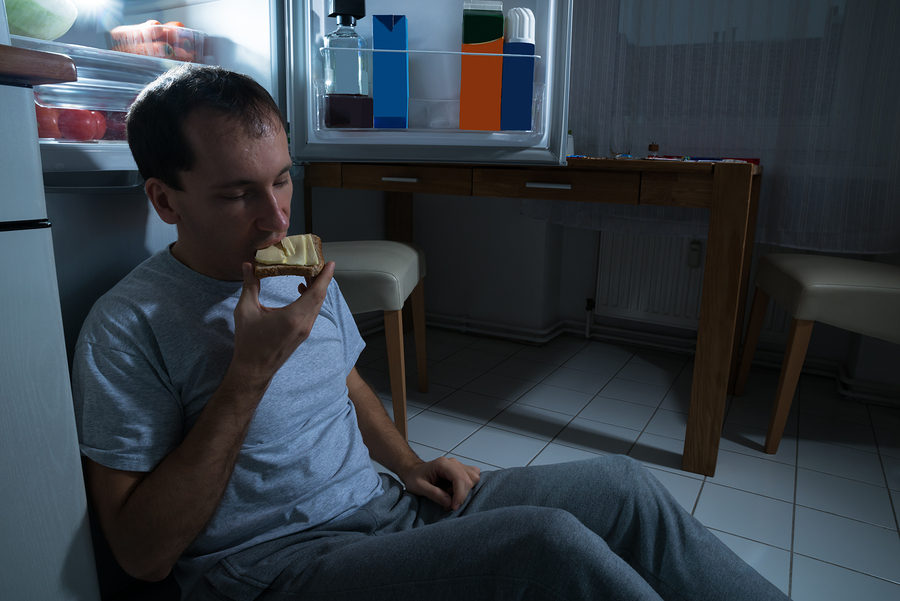
Are you a late-night snacker? If so, you might be interested to learn that researchers at Brigham Young University (BYU) in Provo, Utah, have shed new light on why you and so many people you know are guilty of late-night snacking. Images of food will cause spikes in brain activity. Research shows that the effect is less impactful at night since some areas of the brain don’t get the same food high in the evening hours. The participants of the study were observed to be more preoccupied with food at night despite their levels of hunger and fullness being similar to those of other times of the day.
The study, appearing in the academic journal Brain Imaging and Behavior, was carried out by BYU’s exercise science professors and a neuroscientist who used functional MRI to measure how participants’ brains react to both high and low calorie food images at varying times throughout the day. There were two separate sessions held one week apart, one during the morning and one during the evening. In each session, subjects viewed 360 images of either low-calorie foods such as grains, fruits, vegetables, or high-calorie foods such as fast food, ice cream, and baked goods. As expected, the researchers discovered that images of high-calorie foods can generate the highest spikes in brain activity. However, they also noticed that those neural responses were lower in the evening. The researchers were quite surprised at the lower brain activity related to food images when viewed in the evening.
Lead author Travis Masterson explains that one might over consume at night because food is less rewarding at that time of day. Because of the low neural responses from food at night, one might eat more in an attempt to get more satisfaction from their food. Lance Davidson, the study’s coauthor, states that discovering that the brain responds at different times of the day could have implications on eating behaviors. The researchers indicated that their study is in its preliminary steps and further work is necessary to better verify and understand the implications of the findings. The next steps are to research the extent that these varying neural responses translate into certain eating patterns, as well as to determine any implications in regards to weight management. Masterson also states that this study has helped him pay more attention to how foods make him feel in the morning and evening hours. When he does eat late at night, he tells himself that what he’s eating probably isn’t as satisfying as it should be, which helps him avoid snacking too much at night.
